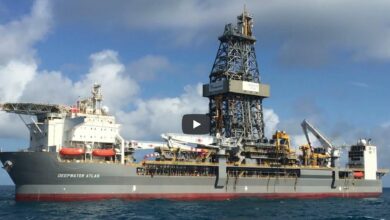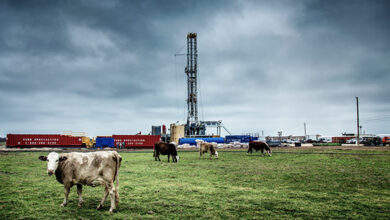GE and Statoil announce winners of open innovation challenge
GE and Statoil announced the four winners of their Open Innovation Challenge, designed to utilize crowd sourcing to find solutions that reduce fresh water in shale oil and gas production.
GE and Statoil recognize that managing water, as a precious natural resource, represents one of the greatest challenges facing the onshore oil and gas industry. Within the industry, water management costs vary between 10-30%. Reducing the amount of water can prove cost-effective by lowering transport and energy costs but is equally beneficial for the environment and local communities.
“A focus on technology helped to unlock the shale revolution. Its intense innovation now shared across industries and between companies will ensure shale development continues in the most sustainable, responsible way possible,” Lorenzo Simonelli, CEO of GE Oil & Gas, said. “The diversity of solutions and sheer volume of submissions we received show the immense talent and creativity gained.”
“We need to continue to invent new, commercial technologies and models to increase margins, and at the same time reduce our carbon footprint. We know that we cannot do this alone – that is why our partnership with GE is also about triggering broader collaboration within and beyond our industry,” Elisabeth Birkeland Kvalheim, Chief Technology Officer at Statoil, said. “The water challenge is a great example of how Statoil and GE, together with the winners, can fast track promising solutions to the market and take an active role in transforming the future of the oil and gas industry.”
Businesses, institutions, and individuals were invited to submit proposals for new solutions to both reduce fresh water usage as well as treat and reuse water from shale production activities – while improving operational productivity.
The Challenge received over 100 submissions from across the globe, with 23 countries represented. Of these, four winners were selected based on the degree of innovation, technically feasibility and commercial viability of their proposals. Each winner will be awarded an initial cash prize of $25,000.
Going forward, a discretionary funding pool of $375,000 is earmarked for co-development activities to be decided based on a more in-depth evaluation of winning proposals.
One of the winners, Anthony Duong, Ph.D., a research scientist at Columbus’ Battelle Memorial Institute, commented: “Open innovation strengthens relationships and bolsters entire industries. We saw a great benefit from applying our expertise in material science to the oil and gas industry, helping to offset the challenging economic realities producers are now facing.”
Brief summaries of each winner are listed below:
Ahilan Raman, Clean Energy and Water Technologies, Australia
- Solution: An integrated technology that first removes total organic compounds and then separates remaining compounds by creating ice crystals through “Eutectic freeze crystallization (EFC).”
Anthony Duong, Battelle Memorial Institute, USA
- Solution: A nano-sponge – a gel formed of nanoscale particles is injected into hydraulically fractured wells to soak up the halite ions (the main actors in forming salt deposits). As a result, salt is never allowed to crystalize, ensuring salt deposits cannot damage the equipment.
Karen Sorber, Micronic Technologies, USA
- Solution: A low-pressure, low-temperature, mechanical evaporation technology – called MicroDesal – that purifies waste water from any source.
Chunlei Guo, University of Rochester, USA
- Solution: A technique using high powered lasers to alter the surface of the inner walls of downhole production pipes, making a metal surface super water repellent.
The companies’ joint initiative – termed Powering Collaboration – exists to accelerate the development of more environmentally and economically sustainable energy solutions. This joint technology-focused program aims to drive an industrial response to some of the greatest challenges facing global energy production, including CO2 and methane emissions, and water usage, while also optimizing business operations.
Learn more about Powering Collaboration here: www.poweringcollaboration.com. Challenges are subject to Official Rules (Water Official Rules).




